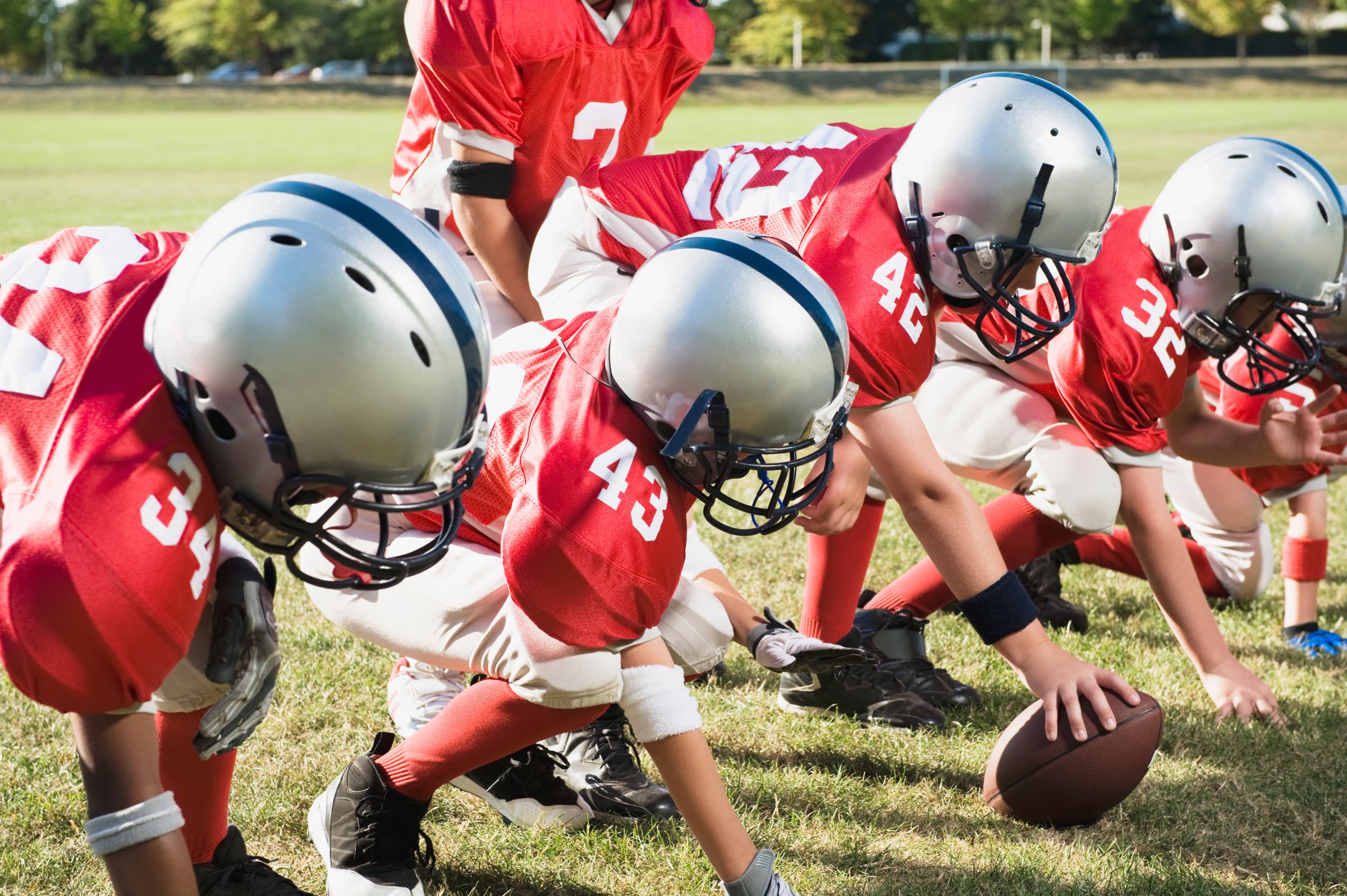
If children play tackle football before they are 12 and continue to play through high school, they may be putting their brains at risk.
That’s the key takeaway from a new study published Tuesday in the journal Nature’s Translational Psychiatry. Researchers from Boston University’s Chronic Traumatic Encephalopathy Center studied 214 former football players, including 43 who only played at the high school level, 103 who played in college, and 68 who played professionally. The scientists found that playing tackle football before the age of 12 increased the odds of problems with behavioral regulation, apathy and executive functioning later in life by twofold, and the odds of suffering symptoms of depression threefold. (The mean age of study participants was 51).
The results held steady for players with different levels of experience. Even for those who didn’t stick with football after high school, playing tackle before the age of 12 increased their risk of behavior and mood problems as adults. “We found that to be pretty remarkable,” says Michael Alosco, a post-doctoral fellow at the Boston University School of Medicine, and lead author of the study.
Read More: How Kids’ Sports Became a $15 Billion Industry
There is a risk of self-selection bias in the study: ex-football players may have chosen to participate in the study in order to report their neurobehavioral issues. The authors also recognize the health and social benefits of participating in sports during pre-adolescence.
The new research comes as concerns about football have increasingly trickled down to the youth level. Across the country, leagues are reporting participation declines and some schools and pee-wee programs have dropped their teams for lack of interest.
Past studies have pointed to the risks of playing tackle football at young ages. In 2015, the BU team found that among a cohort of 40 ex-NFL players, those who started tackle football before 12 showed structural changes to the brain’s white matter, which coordinates communication between different brain regions. That same year, a study in Neurology concluded that greater later-life cognitive impairment was associated with ex-NFL players who participated in tackle football before 12. For a 2016 study published in the journal Radiology, researchers conducted neuroimaging tests on 25 youth football players between the ages of 8 and 13; they found a significant relationship between head impacts and changes to white matter.
While earlier research has tended to focus on the impairments of ex-NFL players, this new study expands the sample size to capture problems facing ex-high school and college players who started tackle football early in life. Experiencing head trauma at early ages could lead to problems later because young brains are particularly vulnerable. Between the ages of 10-12, says Dr. Robert Cantu, a professor of neurology at BU and a leading expert on head trauma, the brain is maximizing its connectivity and fine-tuning its structural development. Intelligence, mood tendencies, and impulse control are starting to take shape. Repeated hits to the head can only disrupt the cognitive growth process. “They can keep your brain from reaching its genetically-endowed potential,” says Cantu.
“This is just more evidence suggesting that your later-life behavior, particularly when it comes to cognitive and mood issues, could be adversely effected by brain trauma early in life,” says Cantu, who has long recommended that kids hold off playing tackle football until they’re 14. “If you have to take hits to the head at all, you’re better off taking them at later ages.”
More Must-Reads From TIME
- The 100 Most Influential People of 2024
- Coco Gauff Is Playing for Herself Now
- Scenes From Pro-Palestinian Encampments Across U.S. Universities
- 6 Compliments That Land Every Time
- If You're Dating Right Now , You're Brave: Column
- The AI That Could Heal a Divided Internet
- Fallout Is a Brilliant Model for the Future of Video Game Adaptations
- Want Weekly Recs on What to Watch, Read, and More? Sign Up for Worth Your Time
Write to Sean Gregory at sean.gregory@time.com